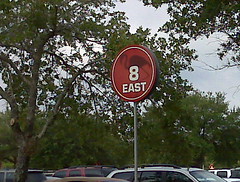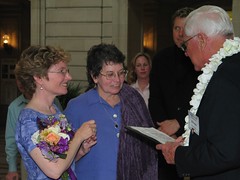“Where there is no vision, the people perish.” — Proverbs 29:18
About a year ago I stated quite firmly that I don’t do professional goals.
But before I launch into that, I’m aware I’ve been relatively quiet here. My bloggy silence is due to a combination of bad stress and good stress that has eaten into my personal writing time. I’ve been working hard to be more of a presence in my family life and get some other stuff done, and for me, writing happens when my mind is clear and I can devote several quiet, sustained hours of concentration on nothing but the words on the page.
Instead my brain constantly natters, “Hey, think about THIS, no think about THAT, but what about THIS, and then about THAT…” In my one recent writing session, after three hours of listening to that bloviating gush of random thoughts I gave up and wrote email to old writing buddies. Not a bad thing to do, actually.
The bad stress is that Sandy is no longer the pastor at her church; she will be consulting while she looks for a settled or permanent position.
I won’t go into details here now or any time in the future, but stuff happens. Sandy has had great church jobs before and she’ll have them again. She’s back “in search,” as they say in her denomination, where her profile is distributed to the regions she has identified (with my involvement and approval).
Yes, that does mean we’ll eventually pack up our troubles in an old kit bag. We have our health and one another, not to mention our ever-amusing cats, and even, in an amazing sign of God’s goodness, naturally curly hair.
I can’t discuss the good stress just yet, but it’s good many times over.
So. Goals.
I still believe that there are few people more annoying or patently false than the strivers living in the future tense, “always thinking about how they are going to get to the job that puts the right title on their door.”
But I think my anti-goals-ism of a year back was an artifact of one ghastly experience. Since then, I’ve been blessed to work with a group of people who aren’t climbing over one another to put Shiny Job Titles on their doors. Nonetheless do think quite naturally about the direction of their careers, the skills they acquire, and the positions they seek to hold, even when that direction is heavily influenced by the desire to stay where they are and do the very best they can do, and become the best they can be, for Their Place Of Work.
(If there can be an MPOW and a YPOW and even an FPOW [where F = Former], then TPOW is valid, as well.)
I also still strongly believe in balance. I tune out the people who want to tell me how many hours they put into their job. They don’t have to tell me; I’m sure their family members have kept careful track for them.
I recall an administrator at a FPOW who misted up when she remembered the good old days under a former director, where they’d stay up until 1 a.m. on a project. I also remember the snide response from someone who had to participate in those sessions and whose spouse was none too amused. They were never on some truly significant project; they were simply performing in an all-emergency all-the-time mode.
But I have also noticed that in the past few months I have looked at certain projects and been so bold as to muse, “I could do that.” Or even, “I SHOULD be doing that.” I’ve allowed myself to remember with pleasure some of the best professional challenges of my career, some of the Manhattan Projects that involved a certain amount of insanity and messianic belief to bring to fruition. Partly through my mentee, I’ve gotten in touch again with my Inner Administrator.
Once life settles down a little bit, I’ll resume writing at five miles per hour. (The writing workshop is crucial during this fallow period. It might seem like a distraction to read “other people’s work,” but to dig down deep into a manuscript is its own little mini-class, and yes, it also counts as reading. Since I’m obliged to participate — I started the damn workshop, after all — my brain calms down and cooperates long enough to let me do my share of effort.)
But I’ve let myself dream myself into the future, and that’s not a bad thing at all.












